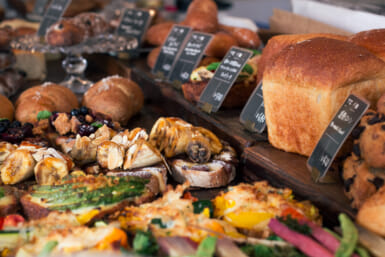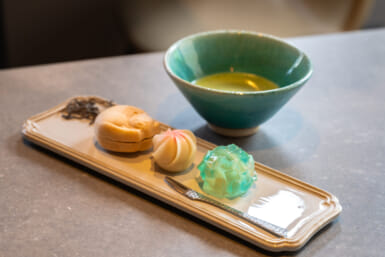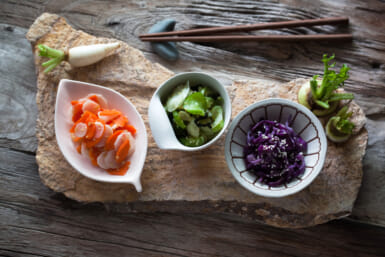Independent hoteliers are an endangered species. Surrounded by predaceous hotel chains, they are fast disappearing into the maws of their voracious predators.
But a few, like Ichiro Inumaru of the Imperial Hotel, have escaped mass extinction by using their independence to become more creative and responsive to their guests’ needs. The hotel industry’s influential Hotel & Restaurants International magazine has rewarded Inumaru’s efforts by naming him 1988 Independent Hotelier of the World, after polling its readers.
Another reward, a more substantial one, came in the bottom-line form. In 1987 the hotel posted the highest gross revenue among the luxury hotels of Japan, more than half of which came from its food-and-beverage operations.
Food and beverage is Inumaru’s particular forte. It was he, for example, who introduced the word, “viking,” into the Japanese language. It was first used in lieu of “smorgasbörd,” but today it is a generic term for any kind of buffet-style meal. I asked him how he had thought up the word. He didn’t think it up, he said; it came to him from a billboard.
“I knew that the Japanese would not be able to pronounce ‘smorgasbörd,’ he said, “and what they can’t pronounce, they don’t want.”
He was wondering what to name the first smorgasbörd restaurant in Japan, when he saw a billboard advertising Kirk Douglas in “The Viking.” That was it! The restaurant was named Viking.
The Imperial is responsible for other verbal borrowings, like “prunier,” originally the name of a French family that operated a seafood restaurant in Paris. It was given to the Imperial’s seafood restaurant, which became famous overnight. Today, “prunier” is what the Japanese call any place that specializes in seafood served western-style.
Other words introduced into the Japanese gastronomic vocabulary are “grill” and “cafe terrace.” But Inumaru takes great personal pride in having brought the pancake to Japan. Today the pancake is found in all sorts of restaurants; housewives even make it at home.
Emphasis on food has resulted in 13 different kinds of dining spots in the Imperial. Seven of them specialize in various types of Chinese and Japanese cuisines. Six are western-style. Such a wide variety gives the clientele, of which 65 per cent are foreign, the chance to choose the meal of his mood.
What is known in gastronomic circles as Inumaru’s “culinary diplomacy” is the Imperial’s annual food festivals. Though other hotels now hold their own, he started the practice with a Swiss Food Festival in 1965. So far the hotel has highlighted the cuisines, music and culture of Indonesia, France, Germany, Italy, Britain, Finland, Yugoslavia, Denmark, Mexico, Belgium, Scandinavia, the United States, Canada and Ireland. Some are annual, some periodic and some have been featured only once. Italy and Heidelberg in West Germany usually are held annually.
His efforts have brought recognition from several countries. Finland has awarded him the Insignia of Knight, First Class, of its order of the White Rose. He holds the rank of Cavaliere Uffiziale of the Republic of Italy. Belgium has made him an Officier de l’Ordre de la Couronne. Norway has honored him with the Knight’s Cross, First Class, of its Royal Order of Saint Olav.
The Imperial was the first western-style hotel to open in Japan, when it was founded in 1890 as a guest house for foreign dignitaries. It was redesigned by Frank Lloyd Wright, opening its new doors in 1923, just as the Great Earthquake struck. It showed its ability to survive then, when it went through that catastrophe unscathed.
Inumaru’s father, Tetsuzo, the Grand Old Man of Japan’s hotel industry, was general manager of the Imperial from 1923 until 1970. It was because of his father that Inumaru went into the hotel business, although he had planned to enter the trading business while he was a student at Keio University.
After graduating from Keio in 1950, he went to City College of San Francisco to take its well-known Hotel and Restaurant course. During that period, he worked part-time as a busboy at the Top o’ the Mark cocktail lounge and as a waiter in the Peacock Court of the Mark Hopkins Hotel. During summer, he worked at the Wawona Hotel in Yosemite Valley. In 1952 he went to Cornell to study hotel management and, after finishing, became a trainee at New York’s Waldorf-Astoria for six months. He then returned to the Imperial and worked in the various departments.
“My experience in the different sections was very valuable, for I not only got to know the personnel, but also developed a rapport with them,” he said. “I know them personally and understand their needs and desires.”
It is that rapport and understanding that continues to add to the fine worldwide reputation of the Imperial. But even though there is a staff-to-room ratio of two-to-one in the 1,140-room hotel, it is a challenge to deliver personalized service.
“Personalized, obliging service is what is emphasized most in all our orientation and training programs as well as in every-day operation,” he said. “If each guest has the impression from our staff that he or she is a cherished, important visitor, we can achieve our goal.”








